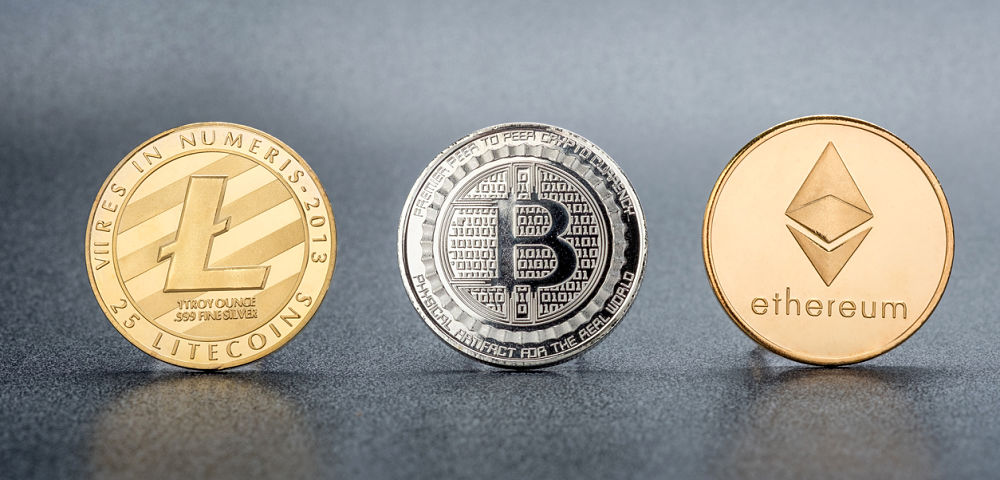The Real Reason Giant Tech Companies are Banning Crypto-Related Ads
The cryptocurrency industry is slowly becoming a booming ecosystem that has started to go mainstream. Recently, two multinational companies indicated their intention to incorporate blockchain technology and cryptocurrencies in their business models. This is an affirmation that cryptocurrencies are here to stay despite the fact that security and regulation concerns exists.
But the gains realized in the cryptocurrency industry have been taken aback after internet companies announced they will no longer run cryptocurrency-related adverts. Google (GOOGL) and Twitter (TWTR) are the latest global internet companies to ban crypto-ads after Facebook (FB).
Both companies have huge online following. Twitter has an estimated 300 million users while Google has billions of active users worldwide. Statistics show that approximately 3.5 billion searches are conducted each day on Google.
Total Crypto Ban?
Considering their huge following, the looming ad ban by the two tech giants is likely to have a negative impact on the cryptocurrency industry. The move by Google and Twitter to join Facebook in banning crypto-adds signifies almost a complete ban of cryptos by social media platforms according to Bojan Oremuz, CEO and founder of Emmares.
He says, “In January 2018 Facebook announced that it would be ban all cryptocurrency and ICO ads. Not long after that, Google joined Facebook saying that it is cracking down on cryptocurrency-related advertising including all crypto-related ads, anything concerning ICOs, crypto wallets, and virtual currency trading advice, by June 2018. Twitter has also announced it plans to ban ICO related ads. Altogether that means an almost complete ban from all of the major social media platforms,” says.
The move by the tech giants to ban crypto ads is largely due to the fact that the cryptocurrency industry is relatively new to most users, it remains unregulated and prone to fraud. By banning crypto-related ads, tech companies feel they’ll be helping protect users against scams. Some of them have fallen victim to of crypto scams, due to the fact that since crypto trading parties can operate anonymously.
Roman Guelfi-Gibbs, CEO and Project Leader at Pinnacle Brilliance says, “It seems like someone in the higher office at Google decided that the risks of allowing criminal enterprises to promote on their sites outweighed the benefits of providing an effective vehicle for legitimate businesses to advertise their companies.
Short-term Impact
There is a strong feeling among industry players that tech companies, including Google are misguided to ban cryptocurrency ads because there are many legitimate crypto projects and businesses. Such businesses are not after extorting investors but they want to create agreeable investment opportunities for their customers or facilitate easy trading and payments.
As such, an all-encompassing ban will hurt legitimate crypto businesses and scare existing and potential crypto investors, causing them to become reluctant to invest in the industry. This will cause a plunge in cryptocurrency prices and market capitalization in the short term.
“A “blanket ban” on an entire sector of the financial community shows that some people still have not gotten over the idea that crypto is primarily used for nefarious activities. We all know that crypto has moved into the mainstream, with banks and corporations adding blockchain technology to their services and projects. It has become synonymous with innovation and advances in fintech,” Guelfi-Gibbs notes.
Immediately Google announced the ban on crypto-related ads, the market took a hit. According to Eugene Liebermann, CEO and founder of CAR Token Company, the announcement was bound to affect the market in some way.
“I am sure that in the short term this will and actually has already had a negative impact on majority of existing leading coins. This basically is caused by millions of people who ask their grandma for investment advice. They should be banned from trading. Agree with me that XRP, BTC or ETH for instance, don’t need and would never be advertised through the Google ads or Facebook lookalike engine,” he says.
Beyond the Ad Bans
ICO startups that are excited to use online advertising to attract and access investors and clients are likely to be the biggest victims of ad bans by Google and Twitter. Such companies will find it difficult to raise capital via initial coin offerings (ICOs).
Some existing crypto businesses will also be affected because some investors may see this as a move to delegitimize the sector. On the other hand, established crypto businesses should welcome this ban because it will weed out con artists and scammers in the industry.
Beyond the ad bans by tech giants, the future of cryptocurrency remains bright. One major reason for this is ongoing plans and efforts by different government agencies across the world to formulate proper regulatory framework for the industry.
Such regulations and policies will solve the concerns that tech companies and other online advertising companies have, security and protection of cryptocurrency users. Ad bans by the tech giants are likely to prompt regulators to speed up their efforts to complete formulation of this legislation. If Google and other advertising platforms are genuine about their reasons for banning crypto ads, they will reverse the bans once appropriate regulations are put in place.
Disclaimer: David Drake is on the advisory board for most of the firms mentioned or quoted in this article.




